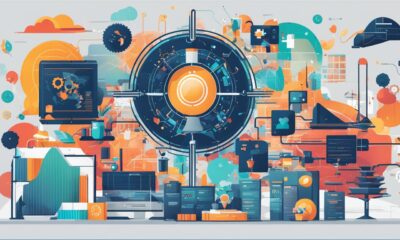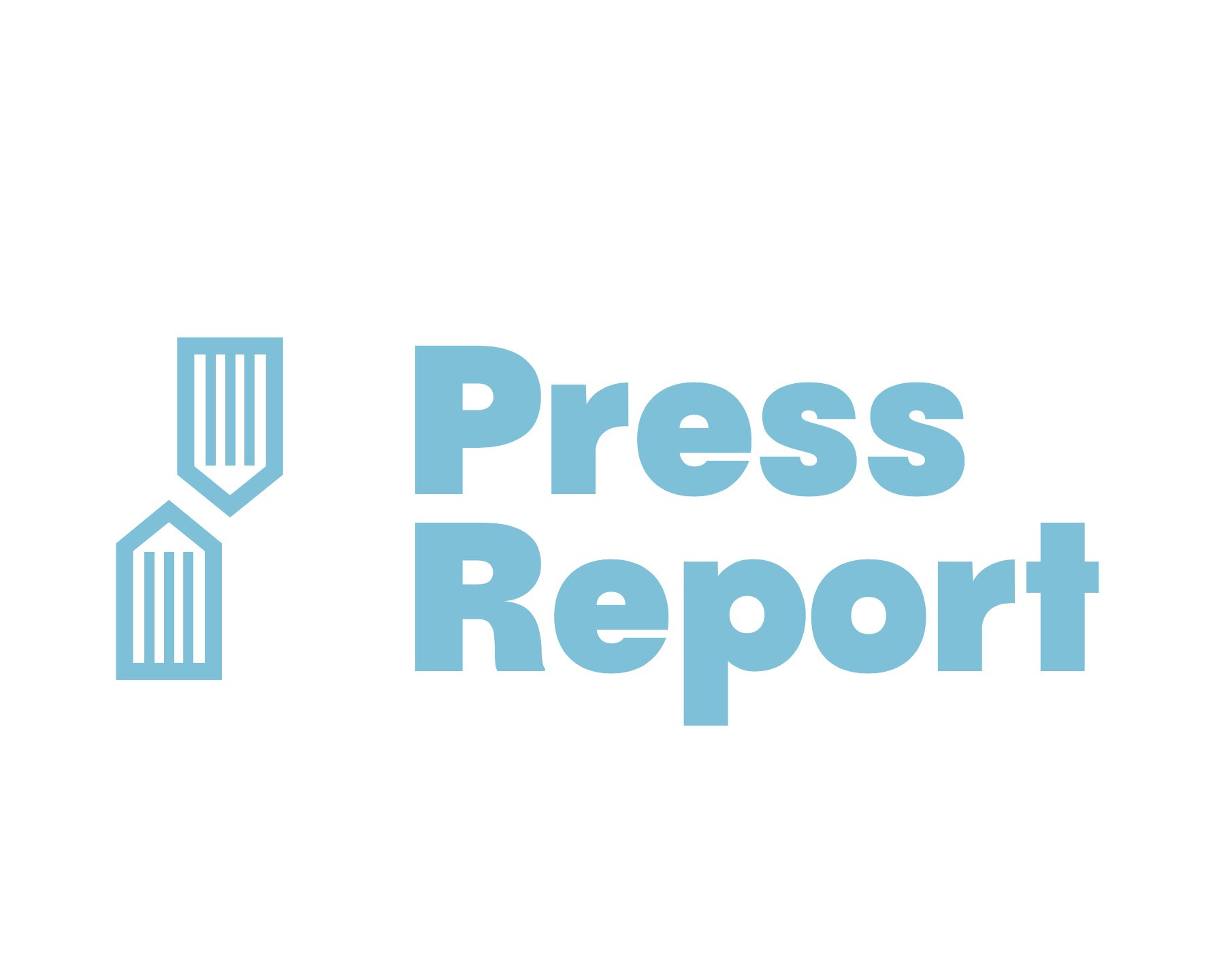AI News
Unlock Future Success: Upskilling For The AI Revolution

We are living in a period characterized by unmatched advancements in technology, where the rise of Artificial Intelligence (AI) stands out as one of the most notable transformations. AI is revolutionizing numerous industries, reshaping traditional job trajectories, and opening up unprecedented opportunities. To thrive in this changing landscape, individuals must strive to improve their abilities and acquire the necessary skills to navigate the progression of AI.
At its core, upskilling for the AI revolution means staying ahead of the curve and continuously adapting to the changing demands of the job market. Lifelong learning is no longer a buzzword; it is a necessity. As AI automation replaces routine tasks, professionals need to focus on developing skills that are adaptable and future-proof.
The essential skills for AI success include data literacy, critical thinking and problem-solving, emotional intelligence, adaptability and lifelong learning, strategic thinking, and collaboration and interdisciplinary skills. These skills form the foundation for thriving in an AI-driven world, empowering individuals to unlock their full potential and contribute meaningfully to the AI revolution.
Key Takeaways:
- Upskilling is essential in the AI revolution to stay ahead of the changing demands of the job market.
- Lifelong learning is crucial for professionals to adapt and develop skills that are adaptable and future-proof.
- Data literacy, critical thinking, emotional intelligence, adaptability, strategic thinking, and collaboration skills are essential for AI success.
- Continuous learning and staying updated on technological developments are key to success in the AI revolution.
AI’s Impact On The Job Market
The rapid advancement of Artificial Intelligence (AI) technology has had a profound impact on the job market. Traditional job roles are being reshaped, and there is a growing demand for professionals with AI skills. To stay relevant in this changing landscape, upskilling in AI is crucial. Professionals need to acquire a range of skills, including data literacy, critical thinking, problem-solving, emotional intelligence, adaptability, strategic thinking, and collaboration.
Table: AI Skills Development
| Skills | Description |
|---|---|
| Data Literacy | Ability to analyze, interpret, and visualize data |
| Critical Thinking and Problem-Solving | Capacity to analyze complex situations and find innovative solutions |
| Emotional Intelligence | Understanding human needs and providing personalized experiences |
| Adaptability | Ability to thrive in an ever-evolving AI landscape |
| Strategic Thinking | Aligning AI initiatives with business goals |
| Collaboration | Facilitating effective teamwork and innovation |
Upskilling in AI involves developing these skills through various means, such as attending AI workforce training programs and participating in artificial intelligence upskilling courses. Organizations like Coursera, Udacity, and LinkedIn Learning offer comprehensive AI courses accessible to professionals at any stage of their careers.
“The future of work lies in embracing AI and acquiring the necessary skills. Upskilling in AI is not only a smart career move but also an opportunity to contribute to the AI revolution and shape the future.”
By embracing AI and upskilling, professionals can position themselves for success in the AI-driven job market. AI skills development is the key to unlocking future opportunities and staying ahead in the ever-evolving AI landscape.

Embracing Lifelong Learning
In the rapidly evolving landscape of artificial intelligence, embracing lifelong learning is crucial for professionals looking to stay relevant and succeed in the AI revolution. With AI automation replacing routine tasks, the demand for adaptable and future-proof skills is on the rise. To meet this demand, professionals can take advantage of AI training programs and certification programs offered by platforms like Coursera, Udacity, and LinkedIn Learning.
These AI training programs provide comprehensive courses that cater to individuals at any stage of their careers. Whether you are just starting or looking to enhance your existing skills, these programs offer flexible learning options and allow you to acquire the necessary knowledge and expertise in AI. By enrolling in these programs, you can gain a deep understanding of AI principles, algorithms, and applications.
AI certification programs are another valuable resource for professionals seeking to upskill in AI. These programs provide industry-recognized credentials that demonstrate your proficiency in AI concepts and techniques. With AI certification, you can enhance your credibility and increase your chances of securing opportunities in the competitive AI job market.
Embracing lifelong learning through AI training programs and certification programs is the key to unlocking your potential in the AI future. By continuously expanding your skills and knowledge, you can adapt to the changing demands of the AI landscape and position yourself for future success.

AI Training Programs
| Platform | Courses Offered | Duration |
|---|---|---|
| Coursera | Introduction to Artificial Intelligence, Machine Learning, Deep Learning, Natural Language Processing | Varies (4-12 weeks) |
| Udacity | AI Programming with Python, Intro to Self-Driving Cars, Deep Learning Nanodegree | Varies (4-12 weeks) |
| LinkedIn Learning | AI Foundations: Machine Learning, AI for Business Strategy, Building AI Applications with Azure | Varies (1-8 hours per course) |
The Essential Skills For AI Success
In the rapidly evolving landscape of artificial intelligence (AI), there are certain essential skills that professionals need to possess in order to succeed. These skills include:
- Data Literacy: The ability to analyze, interpret, and visualize data is crucial in harnessing the power of AI. Professionals with data literacy skills can effectively utilize data to drive insights and make informed decisions.
- Critical Thinking and Problem-Solving: In the complex world of AI, critical thinking and problem-solving skills are essential for analyzing intricate situations and finding innovative solutions. These skills enable professionals to navigate challenges and drive progress in AI initiatives.
- Emotional Intelligence: While AI technology is advancing rapidly, the human touch is still invaluable. Emotional intelligence allows professionals to understand and empathize with human needs, enabling them to create personalized experiences and build meaningful connections.
- Adaptability and Lifelong Learning: AI is constantly evolving, and professionals need to be adaptable and embrace lifelong learning. The ability to adapt to new technologies and acquire new skills is crucial in staying relevant and thriving in the ever-changing AI landscape.
- Strategic Thinking: Strategic thinking is essential in aligning AI initiatives with business goals. Professionals with strategic thinking skills can effectively plan and execute AI projects, ensuring they contribute to overall organizational success.
- Collaboration and Interdisciplinary Skills: AI projects often require interdisciplinary collaboration. Professionals with collaboration and interdisciplinary skills can effectively work in teams, combining knowledge from various domains to drive innovation and achieve desired outcomes.
By developing and honing these essential skills, professionals can position themselves for success in the AI revolution. These skills provide the foundation for leveraging AI technology and driving meaningful impact in various industries.
“Data literacy, critical thinking, emotional intelligence, adaptability, strategic thinking, and collaboration are the keys to unlock success in the AI revolution.”
As the AI landscape continues to evolve, it is essential for professionals to continually invest in these skills through various learning opportunities. Lifelong learning and adaptability are crucial in staying at the forefront of AI advancements and seizing new opportunities as they arise.
| Skill | Description |
|---|---|
| Data Literacy | The ability to analyze, interpret, and visualize data for effective decision-making in AI initiatives. |
| Critical Thinking and Problem-Solving | The skills to analyze complex situations and find innovative solutions in the AI landscape. |
| Emotional Intelligence | The capacity to understand and empathize with human needs to deliver personalized experiences. |
| Adaptability and Lifelong Learning | The ability to adapt to new technologies and constantly acquire new skills in the evolving AI field. |
| Strategic Thinking | The skills to align AI initiatives with business goals and drive overall organizational success. |
| Collaboration and Interdisciplinary Skills | The ability to effectively work in teams and leverage knowledge from various domains for innovation. |
Mastering these skills will empower professionals to navigate the AI revolution with confidence and make a meaningful impact in their respective fields.

The Journey of Upskilling
When it comes to upskilling for the AI revolution, there are various paths you can take to acquire the necessary education and training. Online courses, workshops, and certifications are excellent resources to enhance your AI skills. Platforms like Coursera, Udacity, and LinkedIn Learning offer comprehensive AI courses that are accessible to individuals at any stage of their careers. By investing in AI education and training, you can stay ahead of the curve and unlock a world of opportunities.
However, upskilling is not just about acquiring knowledge in isolation. Building a network of like-minded professionals and joining AI communities and networking events is equally important. These platforms provide opportunities for learning, collaboration, and mentorship. Engaging with others in the field allows you to gain new insights, share experiences, and stay updated on the latest trends and advancements in AI.
While theoretical knowledge and networking are valuable, hands-on experience is essential to solidify your skills. Taking part in AI projects and applying your knowledge in real-world scenarios will not only reinforce your learning but also showcase your capabilities to potential employers or clients. It is through practical application that you can truly grasp the intricacies of AI and gain the confidence to tackle complex problems head-on.

AI Education and Training – Key Points:
- Online courses, workshops, and certifications offer comprehensive AI education and training
- Platforms like Coursera, Udacity, and LinkedIn Learning provide accessible resources for individuals at any stage of their careers
- Joining AI communities and networking events enables learning, collaboration, and mentorship opportunities
- Hands-on experience through AI projects allows for the practical application of acquired skills
By embracing a holistic approach to upskilling, combining theoretical knowledge, networking, and practical experience, you can empower yourself for the AI future. This journey of upskilling will equip you with the necessary skills to thrive in the AI revolution and unlock a world of exciting possibilities.
Empower Yourself For The AI Future With Mentoria
Are you ready to unlock your AI superpowers? At Mentoria, we are dedicated to helping professionals thrive in the AI revolution through expert career guidance and personalized resources. With our comprehensive AI professional development programs, you can upskill and navigate the ever-changing AI landscape with confidence.
Our platform offers industry insights and mentorship opportunities, connecting you with experienced professionals who can guide you on your journey to becoming an AI superstar. Whether you are just starting or looking to advance your career, we provide the support and resources you need to succeed.
At Mentoria, we believe that AI is the future, and by empowering yourself with the right skills and knowledge, you can unleash your AI superpowers. Join us and take control of your AI career today.
“Mentoria has been a game-changer for me. Their personalized approach and expert guidance have helped me navigate the AI landscape and advance my career. I highly recommend their professional development programs for anyone looking to thrive in the AI revolution.” – Sarah, AI Professional
Unlock Your AI Potential
With Mentoria, you can tap into a world of AI opportunities. Our platform provides access to AI courses, workshops, and certifications, allowing you to enhance your skills and stay ahead in this fast-paced industry. From machine learning to natural language processing, we offer a wide range of AI training programs that cater to professionals at all stages of their careers.
| Program | Duration | Skills Covered |
|---|---|---|
| AI Foundations | 6 weeks | Data literacy, critical thinking and problem-solving, emotional intelligence |
| Machine Learning Mastery | 8 weeks | Machine learning, deep learning |
| Natural Language Processing | 4 weeks | Natural language processing, data science |
| Computer Vision Essentials | 6 weeks | Computer vision, robotics |

Join Mentoria today and empower yourself for the AI future. With our personalized resources and expert guidance, you can gain the AI superpowers you need to succeed in this transformative era.
Adapt to AI and Automation
As AI becomes the new norm, it’s crucial for professionals to adapt and incorporate AI and automation into their work routines. AI automation is revolutionizing industries and transforming job roles, creating a need for individuals with relevant skills and up-to-date knowledge. While some employers may provide upskilling opportunities, it’s important for individuals to take initiative and narrow their skills gap by undertaking short courses and familiarizing themselves with new AI tools.
Upskilling opportunities in AI and automation are abundant, with platforms like Coursera, Udacity, and LinkedIn Learning offering comprehensive courses and certifications. These programs provide individuals with the chance to enhance their understanding of AI technologies, machine learning algorithms, and data analytics. By acquiring these skills, professionals can position themselves as valuable assets in an increasingly AI-driven workforce.
In addition to formal training, staying informed about new AI tools and technologies is crucial. Monitoring industry trends and participating in online communities can provide valuable insights and networking opportunities. This allows professionals to stay ahead of the curve and adapt to the ever-evolving AI landscape.
Insights on AI Automation
“AI automation is reshaping industries and creating new job opportunities. By adapting to AI and incorporating automation into their work, professionals can thrive in the AI revolution.”
Benefits of Adaptation
- Increased efficiency and productivity
- Improved decision-making processes
- Access to new career opportunities
- Enhanced problem-solving capabilities
- Ability to work alongside AI technologies
By embracing AI and automation, professionals can future-proof their careers and unlock new possibilities in the ever-changing job market.
Upskill your soft skills
Soft skills are an essential component of success in the workplace, even in the age of automation. While technical skills and knowledge are important, the ability to effectively communicate, problem-solve, and collaborate sets individuals apart. As automation continues to reshape traditional job roles, employers are placing greater emphasis on soft skills in their hiring processes. Investing in the development of these skills can greatly enhance your career prospects and make you more valuable in the increasingly automated job market.
In today’s fast-paced and technology-driven world, soft skills have become more important than ever. With automation taking care of routine and repetitive tasks, employers are seeking candidates who can bring a human touch to their work. Skills such as critical thinking, empathy, and adaptability are highly valued as they enable individuals to navigate complex situations, build rapport with colleagues and clients, and thrive in dynamic work environments.
Skills-based hiring is a growing trend that focuses on an individual’s abilities and potential rather than solely on their qualifications or experience. Employers are recognizing that technical skills can be taught, but soft skills are often more difficult to develop. By upskilling your soft skills, you can position yourself as a candidate who brings a unique blend of technical expertise and human-centric qualities to the table.
To develop your soft skills, consider seeking out opportunities for experiential learning, such as participating in group projects or taking on leadership roles. Engaging in active listening, seeking feedback, and practicing effective communication are also crucial for honing your soft skills. Additionally, attending workshops, seminars, and networking events can provide valuable insights and connections that can further enhance your skill set.
Table: Top Soft Skills for the Automated Workplace
| Soft Skill | Description |
|---|---|
| Communication | The ability to express ideas clearly and effectively, both verbally and in writing, to facilitate collaboration and understanding. |
| Problem-solving | The capacity to identify, analyze, and resolve complex problems using critical thinking, creativity, and resourcefulness. |
| Adaptability | The flexibility and openness to adjust to new circumstances, technologies, and work demands. |
| Leadership | The ability to inspire, motivate, and guide others towards achieving common goals. |
| Collaboration | The aptitude to work effectively and harmoniously with diverse teams to achieve shared objectives. |
| Emotional Intelligence | The capability to recognize, understand, and manage emotions in oneself and others to build strong relationships and navigate social dynamics. |
In conclusion, while AI and automation are transforming the job market, there is still a strong demand for individuals with exceptional soft skills. By upskilling in areas such as communication, problem-solving, adaptability, and collaboration, you can future-proof your career and stand out in a competitive job market. Remember, it’s not just about what you know; it’s about how well you can apply your knowledge and work with others. So invest in your soft skills and position yourself for success in the age of automation.
Equip your workforce with the AI skills of tomorrow
In order to thrive in the AI revolution, organizations must arm their workforce with the necessary skills to harness the power of artificial intelligence. The demand for professionals skilled in machine learning, deep learning, natural language processing, computer vision, robotics, and data science is growing rapidly. These skills enable individuals to drive innovation, solve complex problems, and stay ahead in the ever-evolving technological landscape.
Machine learning is a core component of AI, allowing systems to learn and improve from experience without being explicitly programmed. Deep learning, a subset of machine learning, focuses on developing artificial neural networks that can analyze and process complex data structures. Natural language processing enables computers to understand and interact with human language, while computer vision empowers machines to perceive and interpret visual information. Robotics combines AI with engineering to create intelligent machines that can perform physical tasks.
Data science plays a crucial role in AI, as it involves extracting insights and knowledge from large and complex datasets. Professionals with expertise in data science are equipped to gather, analyze, and interpret data, providing valuable insights to drive decision-making and problem-solving.
| Skill | Description |
|---|---|
| Machine Learning | Enables systems to learn and improve from experience without explicit programming. |
| Deep Learning | Focuses on developing artificial neural networks to analyze and process complex data structures. |
| Natural Language Processing | Empowers computers to understand and interact with human language. |
| Computer Vision | Allows machines to perceive and interpret visual information. |
| Robotics | Combines AI with engineering to create intelligent machines that can perform physical tasks. |
| Data Science | Extracts insights and knowledge from large and complex datasets. |
By investing in AI skills development and providing training opportunities in these areas, organizations can equip their workforce with the tools needed to tackle the challenges and seize the opportunities presented by the AI revolution. With a skilled and capable workforce, companies can drive innovation, improve operational efficiency, and stay competitive in the ever-changing business landscape.
Conclusion
In conclusion, acquiring AI skills is crucial for staying relevant and contributing to the AI revolution. As we look ahead to 2023, the most sought-after AI skills include machine learning, deep learning, natural language processing, computer vision, robotics, and data science. These skills empower professionals to harness the power of AI and drive innovation in various industries.
However, it is important to remember that with great power comes great responsibility. Ethical AI and bias mitigation are essential considerations in the development and deployment of AI technologies. We must prioritize the ethical implications of AI and work towards creating systems that are fair, transparent, and unbiased.
To thrive in the AI revolution, continuous learning and staying updated on technological developments are key. As AI continues to evolve, we must adapt and upskill to meet the changing demands of the job market. By embracing lifelong learning, attending AI training programs, and participating in hands-on projects, we can equip ourselves with the necessary skills to navigate the ever-changing AI landscape.
So let’s embrace the AI future with enthusiasm and dedication. By acquiring the right AI skills, championing ethical AI practices, and staying ahead of the curve, we can unlock our potential and contribute to a future where AI benefits us all.
FAQ
What is the importance of upskilling for the AI revolution?
Upskilling is crucial in staying relevant in the AI revolution as it allows professionals to acquire the necessary skills to thrive in the dynamic job market.
How is AI impacting the job market?
AI is disrupting traditional job roles and creating new opportunities, making it crucial to understand its impact and acquire AI skills to stay competitive.
How can individuals embrace lifelong learning in the AI revolution?
Individuals can embrace lifelong learning by seeking AI education and training through online courses, workshops, and certifications to enhance their skills and stay updated on technological developments.
What are the essential skills for AI success?
The essential skills for AI success include data literacy, critical thinking and problem-solving, emotional intelligence, adaptability and lifelong learning, strategic thinking, and collaboration and interdisciplinary skills.
How can individuals embark on the journey of upskilling?
Individuals can embark on the journey of upskilling by seeking AI education and training online, joining AI communities and attending networking events, and gaining hands-on experience through AI projects.
How can Mentoria help in empowering individuals for the AI future?
Mentoria is a platform that provides expert career guidance, personalized resources, industry insights, and mentorship opportunities to support professionals in upskilling and navigating the AI landscape.
How can professionals adapt to AI and automation in the workplace?
Professionals can adapt to AI and automation in the workplace by undertaking upskilling opportunities provided by employers and familiarizing themselves with new AI tools through short courses and self-learning.
How important are soft skills in the AI revolution?
Soft skills, such as problem-solving, rapport-building, and leadership, play a significant role in the workplace, even with automation. Developing these skills is essential for career growth in the AI revolution.
What are the AI skills that will be in demand in the future?
The AI skills that will be in demand in the future include machine learning, deep learning, natural language processing, computer vision, robotics, and data science, enabling professionals to drive innovation and harness the power of AI.
How can professionals equip themselves with the AI skills of tomorrow?
Professionals can equip themselves with the AI skills of tomorrow by seeking AI education and training, staying updated on advancements in the field, and considering ethical AI and bias mitigation in their work.
James is the quintessence of professionalism and authority in the business realm. With years of experience navigating the complexities of the corporate world, he brings an unparalleled depth of knowledge and insight to our team. James’s analytical skills and business acumen allow him to dissect and present news stories with clarity and precision, offering our readers a comprehensive understanding of the latest business trends and economic shifts.
AI News
ByRetreat Celebrates the Exciting Relaunch of Coffee Lovers 101

Munich, 2024, May 16th — ByRetreat is delighted to announce the highly anticipated relaunch of Coffee Lovers 101, the ultimate online destination for coffee aficionados. The revamped website now offers an enriched user experience with updated content, innovative features, and a fresh new design, reaffirming its commitment to being the go-to resource for coffee enthusiasts worldwide.

About Coffee Lovers 101
Coffee Lovers 101 was founded by a dedicated group of coffee lovers who sought to share their passion and knowledge with a global audience. Over the years, it has become a beloved platform for anyone looking to deepen their understanding of coffee culture, brewing techniques, and the latest industry trends. The relaunch aims to elevate this experience by providing more comprehensive and engaging content.
Highlights of the Relaunch
- User-Friendly Design: The website has been completely redesigned to offer a more intuitive and seamless browsing experience. With an improved layout and navigation, visitors can easily find the information and resources they need.
- Expanded Content Library: Coffee Lovers 101 now features a wider array of articles, including detailed brewing guides, expert coffee tips, and up-to-date industry news. There’s something for everyone, from beginners to seasoned coffee drinkers.
- Thorough Product Reviews: With a dedicated product reviewer, the site offers in-depth and honest evaluations of the latest coffee appliances and accessories, helping readers make informed choices.
- Enhanced Community Interaction: The new Coffee Lovers 101 places a strong emphasis on community, introducing more interactive features such as forums, social media integration, and opportunities for user-generated content.
Meet the Team

The relaunch is driven by a talented and passionate team of coffee experts and content creators:
- Emma, Editor-in-Chief: Formerly with StrongMocha News Group, Emma leads the editorial team with a deep love for coffee and a sharp editorial eye.
- Jack, Content Creator: Jack, previously at Candy Artisans, brings his storytelling skills to create captivating and informative coffee-related content.
- Sophie, Social Media Manager: With her successful background at ByRetreat, Sophie enhances the site’s social media presence, fostering a vibrant and engaged community.
- Liam, Product Reviewer: Liam’s meticulous approach to product reviews, honed at Eat More Butter, provides readers with reliable insights into the best coffee gadgets on the market.
- Olivia, Marketing Specialist: Olivia’s expertise in digital marketing, developed at Cappuccino Oracle, drives the growth and visibility of Coffee Lovers 101, ensuring it reaches a global audience.
Quotes
Sophie, the Social Media Manager, expressed her enthusiasm for the relaunch: “At ByRetreat, we understand the importance of community and connection. The new Coffee Lovers 101 embodies these values and offers a fantastic platform for coffee lovers to learn, share, and grow together.”
About ByRetreat
ByRetreat is a leading digital platform that curates the best in lifestyle, wellness, and community engagement. Our mission is to connect individuals with the resources and inspiration they need to live their best lives. We are proud to support Coffee Lovers 101 in its journey to become the premier coffee resource on the web.
Contact Information
For more information about the relaunch of Coffee Lovers 101, please contact:
- Email: press@byretreat.com
- Website: www.byretreat.com
With the relaunch of Coffee Lovers 101, coffee enthusiasts everywhere have a renewed resource to deepen their appreciation and knowledge of coffee. Visit www.coffeelovers101.com to explore the new features and join the vibrant community of coffee lovers.

Olivia stands at the helm of Press Report as our Editor-in-chief, embodying the pinnacle of professionalism in the press industry. Her meticulous approach to journalism and unwavering commitment to truth and accuracy set the standard for our editorial practices. Olivia’s leadership ensures that Press Report remains a trusted source of news, maintaining the highest journalistic integrity in every story we publish.
AI News
StrongMocha News Group Announces the Exciting Relaunch of Coffee Lovers 101

Munich, 2024. May 16th — StrongMocha News Group is thrilled to announce the relaunch of Coffee Lovers 101, the premier online destination for coffee enthusiasts. The revamped site promises to deliver an enriched experience with new content, features, and a fresh look, reaffirming its commitment to providing the best in coffee knowledge, reviews, and community engagement.
About Coffee Lovers 101
Coffee Lovers 101, originally launched by a group of passionate coffee aficionados, has grown into a beloved resource for coffee lovers around the globe. The website covers everything from brewing techniques and product reviews to the latest trends in the coffee industry. With its relaunch, Coffee Lovers 101 aims to offer even more value to its readers with updated content and improved user experience.

Key Features of the Relaunch
- Enhanced User Experience: The website has been completely redesigned to ensure a more intuitive and user-friendly experience. The new layout makes navigating and finding the necessary information easier for visitors.
- Expanded Content: Coffee Lovers 101 now features a broader range of articles, including in-depth guides, expert tips, and industry news. Whether you are a novice or a seasoned coffee drinker, there’s something for everyone.
- Comprehensive Product Reviews: With a dedicated product reviewer, Coffee Lovers 101 provides honest and thorough reviews of the latest coffee appliances and gadgets, helping readers make informed purchasing decisions.
- Community Engagement: The revamped site emphasizes community more, with more interactive features such as forums, social media integration, and opportunities for user-generated content.
Meet the Team
A dynamic team of coffee experts and content creators spearheads the relaunch of Coffee Lovers 101:
- Emma, Editor-in-Chief: With her background at StrongMocha News Group, Emma leads the editorial team with a keen eye for detail and a passion for coffee innovation.
- Jack, Content Creator: Jack brings his storytelling expertise from Candy Artisans, crafting engaging and informative articles that captivate readers.
- Sophie, Social Media Manager: Sophie’s experience at ByRetreat ensures that Coffee Lovers 101’s social media presence is vibrant and interactive.
- Liam, Product Reviewer: Formerly with Eat More Butter, Liam’s meticulous approach to product reviews provides readers with reliable and comprehensive insights.
- Olivia, Marketing Specialist: Olivia’s marketing prowess, honed at Cappuccino Oracle, drives the website’s growth and visibility, reaching coffee lovers far and wide.
Quotes
Emma, the Editor-in-Chief, shared her excitement about the relaunch: “We are thrilled to bring Coffee Lovers 101 into a new era with a fresh look and expanded content. We aim to continue inspiring and educating our community about the wonderful world of coffee.”
About StrongMocha News Group
StrongMocha News Group is a leading provider of high-quality content across various niches, including food, technology, and lifestyle. Committed to excellence and innovation, It strives to deliver engaging and informative content to its diverse audience.

Contact Information
For more information about the relaunch of Coffee Lovers 101, please contact:
- Email: press@strongmocha.com
- Website: www.strongmocha.com
This press release marks a significant milestone in Coffee Lovers 101’s journey. With its relaunch, the website will become an even more essential resource for coffee enthusiasts everywhere. Visit www.coffeelovers101.com to explore the new features and join the community of passionate coffee lovers.
AI News
Understanding and Promoting Ethical AI Practices

As artificial intelligence (AI) becomes more integrated into our daily activities, understanding and promoting ethical AI practices is crucial. Ethical AI refers to the conscientious development and deployment of AI systems, emphasizing fairness, transparency, and accountability. Adhering to ethical standards ensures that AI technologies are unbiased, dependable, and beneficial for both businesses and the broader community.
At its core, ethical AI entails making ethical decisions throughout the entire AI lifecycle. From the design stage to data sourcing, deployment, and ongoing monitoring, we must be conscious of the potential biases and risks associated with AI. By addressing these ethical quandaries, we can harness the power of AI while minimizing potential harm.
In this article, we will delve into the importance of ethical AI practices, the key principles of ethical AI, responsible AI development, ethical data sourcing and management, global perspectives on AI ethics, and the practical implementation of ethical AI. Through these discussions, we aim to equip businesses and individuals with the knowledge and tools necessary to navigate the complex landscape of AI ethics.
Key Takeaways
- Ethical AI involves making responsible decisions throughout the AI lifecycle
- Transparency, fairness, and accountability are key principles of ethical AI
- Responsible AI development requires considering the societal impact and mitigating biases
- Ethical data sourcing and management are essential for maintaining trust and privacy
- Global collaboration is crucial in establishing ethical standards for AI
The Importance of Ethical Data and AI Ethics in Business
As companies increasingly leverage data and artificial intelligence (AI) to create scalable solutions, it is crucial to recognize the importance of ethical practices in managing data and developing AI systems. Responsible AI development requires businesses to prioritize ethical data sourcing and management to mitigate reputational, regulatory, and legal risks associated with AI technologies.
One of the key ethical quandaries in AI is the potential for biased algorithms and discriminatory outcomes. In recent years, lawsuits against companies like IBM, Optum, and Goldman Sachs have highlighted the need for ethical data and AI practices. Allegations of misappropriation of data and biased AI algorithms emphasize the importance of ensuring fairness, transparency, and non-discrimination in AI systems.
“Ethical data sourcing and management are essential for businesses to build trust, maintain integrity, and protect user rights,” says our AI ethics expert. “By implementing strong data privacy practices, obtaining proper consent, and addressing biases, companies can establish responsible AI systems that respect human values and avoid harm.”
Developing AI ethics programs that address these risks is crucial for organizations. These programs help establish guidelines and frameworks that promote transparency, fairness, and accountability throughout the AI lifecycle. By integrating ethical considerations into AI development and decision-making processes, businesses can build trust, minimize biases, and ensure that AI technologies are used responsibly for the benefit of both customers and society.
Table 1 summarizes the importance of ethical data and AI ethics in business:
| Benefits | Risks |
|---|---|
|
|
By prioritizing ethical data practices and developing AI ethics programs, businesses can navigate the complexities of AI while minimizing risks and ensuring responsible AI development and deployment.
Responsible AI and Trustworthy AI Solutions
As we continue to embrace the benefits of artificial intelligence (AI), it is crucial that we prioritize responsible AI practices to ensure the ethical and accountable use of these powerful technologies. Responsible AI entails designing, developing, and deploying AI systems with good intentions, empowering both employees and businesses while preserving fairness and transparency for customers and society as a whole.
To achieve responsible AI, organizations must establish robust governance strategies that outline clear guidelines for ethical AI development and deployment. These strategies should address potential biases, consider principles such as transparency, fairness, and privacy, and provide a framework for the ongoing monitoring of AI impacts. By adhering to these principles and governance strategies, businesses can build trust and confidence in the AI solutions they offer.
Trustworthy AI solutions are those that prioritize ethical considerations throughout the entire AI lifecycle. This includes incorporating ethical principles from the design stage, ensuring transparent and fair decision-making processes, and regularly auditing AI systems to identify and address potential ethical risks. By promoting responsible AI practices and building trustworthy AI solutions, we can foster an ecosystem that benefits both businesses and society at large.
| Principles of Responsible AI | Key Actions for Trustworthy AI Solutions |
|---|---|
|
|
By adopting responsible AI practices and developing trustworthy AI solutions, we can harness the full potential of AI while minimizing ethical risks. This approach not only benefits businesses by building trust with customers and stakeholders but also ensures that AI technologies contribute positively to our society.
Key Principles of Ethical AI
In the development and deployment of AI systems, it is crucial to adhere to key principles that promote ethical AI practices. These principles guide us in creating AI technologies that respect human values, avoid harm, and act as a beneficial force in society. By following these principles, we can ensure that AI systems are transparent, fair, non-discriminatory, and prioritize privacy and data protection.
Transparency and explainability are fundamental principles of ethical AI. It is essential that the inner workings of AI systems are understandable and accessible to users. By providing transparency, we can foster trust and enable users to make informed decisions regarding the use of AI technologies. Explainability allows us to identify and rectify any biases or discriminatory outcomes that may arise from AI algorithms.
Fairness and non-discrimination are critical aspects of ethical AI. It is crucial to ensure that AI systems do not favor or discriminate against any individual or group based on characteristics such as race, gender, or socioeconomic status. By promoting fairness and non-discrimination, we can create AI technologies that contribute to a more equitable and inclusive society.
Respecting privacy and protecting data are essential in the development and deployment of AI systems. Ethical AI practices require us to handle user data responsibly, ensuring its security and safeguarding individual privacy rights. By prioritizing privacy and data protection, we can mitigate the risks associated with data breaches and ensure that AI technologies respect user rights.
Key Principles of Ethical AI:
| Principle | Description |
|---|---|
| Transparency | AI systems should provide clear and understandable explanations of their operation and decisions. |
| Explainability | AI systems should be able to explain their decision-making processes and identify any biases or discriminatory outcomes. |
| Fairness | AI systems should be designed to ensure fairness and avoid discrimination against individuals or groups. |
| Non-discrimination | AI systems should not discriminate against individuals based on characteristics such as race, gender, or socioeconomic status. |
| Privacy | AI systems should respect user privacy rights and handle data securely. |
| Data Protection | AI systems should protect user data from unauthorized access and breaches. |
Ethical Data Sourcing and Management for AI
In the realm of artificial intelligence (AI), ethical data sourcing and management are paramount to ensuring the responsible and trustworthy use of AI technologies. We understand that ethical considerations, such as data privacy, consent, data security, and data management, play a significant role in maintaining the integrity and reliability of AI systems.

When it comes to data sourcing, organizations must prioritize obtaining data in a manner that respects privacy, consent, and individual data rights. This means adhering to legal requirements and obtaining explicit consent from individuals for the use of their data. By doing so, businesses can mitigate legal risks and build trust with their users.
Additionally, proper data management is crucial for upholding ethical standards in AI. This includes secure storage, controlled access, and regulated deletion practices to protect data privacy and respect individual rights. By implementing robust data management protocols, organizations can ensure that AI systems operate with integrity and maintain user trust.
Ethical Data Sourcing and Management Best Practices
- Obtain data through legal and ethical means, ensuring compliance with applicable privacy regulations.
- Explicitly obtain informed consent from individuals before using their data for AI purposes.
- Implement strong data security measures to protect data against unauthorized access or breaches.
- Establish controlled access protocols to limit data handling to authorized individuals and prevent misuse.
- Adopt regulated deletion practices to remove unnecessary data and respect individuals’ rights to data erasure.
By adhering to these best practices, organizations can uphold ethical standards in data sourcing and management for AI, ultimately fostering trust and accountability in their AI systems. This approach is essential to ensure the responsible and ethical use of AI technologies, safeguarding the interests and rights of both businesses and users.
| Key Considerations | Benefits |
|---|---|
| Data Privacy | Protects individuals’ personal information and upholds their privacy rights. |
| Consent | Ensures that data usage is transparent and respectful of individuals’ choices. |
| Data Security | Prevents unauthorized access or breaches, safeguarding sensitive information. |
| Data Management | Ensures data is handled responsibly and complies with legal and regulatory requirements. |
| Trust | Builds user trust in AI systems by demonstrating ethical practices in data sourcing and management. |
Global Perspectives on AI Ethics
As the field of artificial intelligence continues to evolve, it has become increasingly important to consider the ethical implications of AI technologies. Global perspectives on AI ethics are emerging as countries and international organizations recognize the need to establish guidelines and regulations for the responsible development and use of AI.
Several countries have taken the lead in shaping AI ethics by publishing their own guidelines. The European Union, Singapore, and Canada, for example, have each released their own AI ethics frameworks, emphasizing the importance of fairness, accountability, and human-centered values in AI development and deployment.
International collaboration is crucial in establishing globally accepted ethical standards. By working together, countries can share best practices, learn from each other’s experiences, and create a unified approach to AI ethics. This collaborative effort will help ensure that AI technologies are used in a way that benefits society while minimizing potential risks.
The Role of Ethical Guidelines and AI Regulations
Ethical guidelines and AI regulations play a vital role in shaping the future of AI ethics. These guidelines provide a framework for organizations and individuals to follow, ensuring that AI technologies are developed and used responsibly. By adhering to ethical principles such as transparency, fairness, and privacy, companies can build trust with users and stakeholders.
AI regulations provide a legal framework for governing the use of AI technologies. They help address concerns such as data privacy, algorithmic bias, and accountability. By implementing regulations, governments can protect individuals’ rights and ensure that AI technologies are used in a way that aligns with societal values.
By combining ethical guidelines and AI regulations, organizations can establish a comprehensive approach to AI ethics. This approach focuses on creating human-centered AI systems that respect individual rights, minimize biases, and promote fair and accountable decision-making.
| Country/Organization | AI Ethics Guidelines |
|---|---|
| European Union | Emphasizes fairness, accountability, and transparency in AI development. |
| Singapore | Focuses on ethical AI governance, accountability, and public participation. |
| Canada | Highlights the importance of human-centric AI and responsible innovation. |
Practical Implementation of Ethical AI
Implementing ethical AI practices is crucial for organizations to ensure responsible and accountable use of artificial intelligence technologies throughout the AI lifecycle. From the design stage to data sourcing and auditing AI systems, ethical considerations must be integrated at every step.
When designing AI systems, it is essential to prioritize ethical principles to guide decision-making. This includes transparency, explainability, fairness, non-discrimination, privacy, and data protection. By incorporating these principles, organizations can develop AI systems that respect user rights, mitigate biases and discrimination, and act in the best interests of society.
Data sourcing plays a critical role in ethical AI implementation. Organizations need to ensure that data is sourced ethically, with respect for privacy, consent, and data rights. Additionally, proper data management practices like secure storage, controlled access, and regulated deletion are necessary to protect data privacy and individual rights. By implementing ethical data sourcing and management strategies, organizations can maintain the integrity of AI systems and build trust with users.
Regular monitoring and auditing of AI systems are essential to ensure ongoing ethical practices. This involves evaluating the impact and performance of AI systems, identifying potential biases or ethical risks, and taking appropriate actions to address them. By continuously assessing AI systems, organizations can identify and rectify ethical issues, improving the overall ethical integrity of their AI technologies.
Implementing Ethical AI: Key Considerations
When implementing ethical AI, there are several key considerations that organizations should keep in mind:
- Develop an AI design process that incorporates ethical principles from the outset.
- Formulate guidelines and policies that clearly define ethical standards for AI development and deployment.
- Train and educate employees on ethical AI practices and the potential risks associated with unethical AI.
- Establish an ethical review process for AI systems and algorithms to identify and remediate biases or ethical concerns.
- Engage with external stakeholders, such as customers, regulators, and ethics boards, to gather feedback and ensure accountability.
| Key Steps for Ethical AI Implementation | Description |
|---|---|
| Integrate ethical considerations in AI design | Ensure that ethical principles are embedded in the design and development process of AI systems. |
| Source data ethically | Obtain data in a way that respects privacy, consent, and data rights. |
| Implement robust data management practices | Securely store, control access, and regulate deletion of data to protect privacy and individual rights. |
| Monitor and audit AI systems | Regularly assess the impact and performance of AI systems, identify biases or ethical risks, and take appropriate actions to address them. |
“Ethical AI implementation requires a holistic approach that encompasses design, data, and ongoing monitoring. By incorporating ethical considerations throughout the AI lifecycle, organizations can build trust, mitigate risks, and ensure responsible AI practices.”
Implementing ethical AI practices is not only a moral imperative but also a strategic advantage for organizations. By prioritizing ethics in AI development and deployment, businesses can build trust with users, avoid reputational damage, and navigate regulatory requirements more effectively. Ethical AI is the foundation for a responsible and accountable AI ecosystem that benefits both organizations and society as a whole.
The Future of AI Ethics
As AI continues to advance, the future of AI ethics holds great importance in ensuring responsible and ethical development of AI technologies. With each advancement, ethical guidelines and regulations need to be developed and implemented to guide the use of AI in a way that respects human values and societal well-being.
The rapid progress in AI brings forth new opportunities and challenges. AI advancements have the potential to revolutionize industries, enhance decision-making processes, and drive innovation. However, they also raise ethical concerns regarding bias, transparency, privacy, and accountability.
The development and implementation of ethical guidelines and regulations are crucial to address these concerns and shape the future of AI ethics,” says Dr. Jane Anderson, an AI ethics expert. “Responsible AI development involves incorporating ethical considerations from the early stages of AI system design and continuously monitoring and evaluating its impact on society.”
Ethical guidelines and regulations provide a framework for responsible AI development. They ensure that AI technologies are developed and used in a way that is transparent, fair, and accountable. These guidelines help mitigate potential biases and discriminatory practices, protect user privacy and data rights, and establish trust between users and AI systems.
The future of AI ethics also relies on international collaboration and the establishment of global standards. By aligning ethical principles and sharing best practices, the global AI community can work together to create a unified approach to responsible AI development. This collaboration will enable the development of AI technologies that serve the best interests of humanity and contribute positively to society.
Key Future Considerations
- Continued development and refinement of ethical guidelines for AI advancements
- Increased focus on transparency and explainability in AI systems
- Addressing biases and promoting fairness in AI decision-making
- Strengthening privacy and data protection measures in AI development
- Ensuring accountability and responsible use of AI technologies
The future of AI ethics holds the promise of shaping the ethical landscape of AI technologies. By prioritizing responsible AI development and adhering to ethical guidelines and regulations, we can build a future where AI technologies work in harmony with human values, respect individual rights, and contribute to a more equitable and inclusive society.
| AI Advancements | Ethical Guidelines | AI Regulations | Responsible AI Development |
|---|---|---|---|
| Advancing AI technologies that drive innovation and transform industries | Establishing guidelines to ensure transparent, fair, and accountable AI development | Implementing regulations to address potential biases and protect user privacy | Prioritizing ethical considerations throughout the AI development lifecycle |
| Enhancing decision-making processes through AI algorithms and models | Addressing biases and promoting fairness in AI decision-making | Creating regulations that govern the responsible use of AI technologies | Monitoring and evaluating the ethical impact of AI systems on society |
| Exploring new frontiers in AI research and applications | Sharing best practices and fostering international collaboration on AI ethics | Building a regulatory framework that ensures ethical AI deployment | Encouraging responsible AI development through organizational policies and practices |
Conclusion
Understanding and promoting ethical AI practices is crucial in the ever-advancing field of artificial intelligence. By incorporating ethical guidelines and responsible AI principles, businesses and organizations can mitigate risks, build trust, and ensure the ethical use of AI technologies.
Responsible AI involves designing, developing, and deploying AI systems with good intentions, while considering the impact on customers and society. It requires the establishment of governance strategies, addressing biases, and adhering to principles such as transparency, fairness, and privacy.
Guidelines and regulations are being developed globally to shape the future of AI ethics. The European Union, Singapore, and Canada have already published their own AI ethics guidelines, emphasizing the importance of fairness, accountability, and human-centric values. International collaboration is vital in establishing global standards for the responsible use of AI.
Incorporating ethical considerations throughout the AI lifecycle, from design to deployment, is essential. Ethical data sourcing and management, along with continuous monitoring and auditing of AI systems, ensure that ethical practices are maintained. This builds trust between users and AI technologies.
We are committed to promoting ethical AI practices, adhering to ethical guidelines, and integrating responsible AI principles into our work. By doing so, we can harness the power of AI while safeguarding against potential risks and ensuring that AI technologies benefit society as a whole.
Case Studies: Ethical AI in Action
As businesses increasingly adopt artificial intelligence (AI) technologies, the importance of ethical AI practices becomes paramount. To understand the impact and potential of ethical AI, let’s explore real-life case studies from the healthcare and finance industries.
The Potential of AI in Healthcare
In the healthcare sector, AI has proven to be a game-changer, improving patient outcomes and revolutionizing medical research. For instance, the use of AI algorithms in medical imaging has led to more accurate diagnoses and faster treatment decisions. By analyzing medical images, AI systems can identify patterns and anomalies that may be missed by human observers. This not only saves time but also improves the accuracy of diagnoses, empowering healthcare professionals to make more informed decisions.
Another example of ethical AI in healthcare is the use of predictive analytics to identify patients at risk of developing certain diseases. By analyzing large datasets and applying machine learning algorithms, AI can predict disease patterns and help doctors intervene early, potentially saving lives.
Ethical AI in Finance
In the finance industry, AI is transforming processes and decision-making. For example, AI-powered chatbots are providing personalized financial advice to customers, improving accessibility and convenience. These chatbots use natural language processing and machine learning algorithms to understand customer queries and provide relevant information in a timely manner.
Additionally, AI algorithms are used for fraud detection and prevention in the finance sector. By analyzing large volumes of transaction data, these algorithms can identify patterns indicative of fraudulent activity. This helps financial institutions protect their customers and prevent financial losses.
| Case Study | Industry | Impact |
|---|---|---|
| AI in Medical Imaging | Healthcare | Improved accuracy and efficiency of diagnoses |
| Predictive Analytics for Disease Prevention | Healthcare | Early intervention and improved patient outcomes |
| AI-powered Chatbots | Finance | Personalized financial advice and improved customer experience |
| Fraud Detection with AI | Finance | Enhanced security and prevention of financial losses |
These case studies demonstrate the positive impact of ethical AI practices in various industries. By leveraging AI technologies responsibly and ethically, businesses can drive innovation while ensuring fairness, transparency, and accountability.
The Role of AI Ethics in Building Trust
Building trust is essential in any relationship, and the same applies to the interaction between users and AI systems. AI ethics plays a crucial role in fostering trust by ensuring responsible AI practices and ethical decision-making. When users perceive AI systems as trustworthy, they are more likely to engage with them and rely on their outputs.
Ethical decision-making is a cornerstone of building trust in AI systems. Organizations must prioritize transparency by clearly communicating how AI algorithms work and the data they rely on. By providing insights into the decision-making process, users can better understand and trust the outcomes generated by AI systems.
Responsible AI practices are also vital in building trust. Organizations should implement measures to address and mitigate biases in AI algorithms, ensuring fair and equitable outcomes. They should also establish accountability mechanisms to monitor AI systems and rectify any unintended consequences or unethical behavior. Trustworthy AI systems are those that are designed and developed with a strong ethical framework.
“Building trust in AI systems requires a commitment to responsible AI practices and ethical decision-making.”
By incorporating AI ethics into the development and deployment of AI technologies, organizations can build trust with users and stakeholders. This trust enables the adoption and acceptance of AI systems, leading to their successful integration into various domains and industries. It also paves the way for the ethical and responsible use of AI, fostering a positive societal impact and ensuring that AI technologies align with human values.
Table: Elements of Trustworthy AI Systems
| Element | Description |
|---|---|
| Transparency | Clearly communicating how AI algorithms work and the data they rely on. |
| Fairness | Mitigating biases and ensuring equitable outcomes from AI algorithms. |
| Accountability | Establishing mechanisms to monitor AI systems and address unintended consequences. |
| Ethical Framework | Designing and developing AI systems with a strong ethical foundation. |
Building trust in AI systems is an ongoing endeavor that requires continuous monitoring, evaluation, and improvement. As AI technologies advance, organizations must stay committed to ethical AI practices and adapt to emerging challenges. By prioritizing AI ethics, we can create a future where AI systems are trusted allies, benefiting individuals and society as a whole.
The Importance of Ethical Leadership in AI Development
In the rapidly evolving field of AI development, ethical leadership plays a crucial role in ensuring responsible and ethical practices. As we continue to harness the power of AI technologies, it becomes imperative for leaders to prioritize ethical decision-making, establish robust governance structures, and foster a culture that values ethical AI development.
Responsible AI development requires leaders who are committed to upholding ethical principles and ensuring that AI technologies are used in a way that benefits individuals and society as a whole. Ethical leadership sets the tone for the entire organization, emphasizing the importance of fairness, transparency, and accountability in all AI-related endeavors.
By promoting ethical leadership in AI development, we can mitigate the risks associated with AI technologies, such as biases, discrimination, and privacy concerns. Ethical leaders guide teams in making informed decisions, considering the societal impact of AI, and actively working towards creating AI systems that are trustworthy and accountable.
Furthermore, ethical leadership also involves establishing AI governance frameworks that provide guidelines and regulations for the development and deployment of AI technologies. These frameworks ensure that AI systems adhere to ethical standards, promoting the responsible use of AI and safeguarding against potential misuse or harm.
FAQ
What is ethical AI?
Ethical AI involves designing, developing, and deploying AI systems with good intentions, considering principles such as transparency, fairness, and privacy, and ensuring the responsible and accountable use of AI technologies.
Why is ethical AI important for businesses?
Ethical AI is important for businesses because it helps mitigate risks, build trust with customers and stakeholders, and ensures fair and responsible use of AI technologies, avoiding reputational, regulatory, and legal issues.
What are the key principles of ethical AI?
The key principles of ethical AI include transparency and explainability, fairness and non-discrimination, and privacy and data protection. These principles guide the development and deployment of AI systems that respect human values and avoid harm.
How can companies implement ethical AI practices?
Companies can implement ethical AI practices by identifying existing infrastructure, creating a data and AI ethical risk framework, learning from successes in healthcare ethics, optimizing guidance for product managers, building organizational awareness, incentivizing employees to identify AI ethical risks, and monitoring impacts and engaging stakeholders.
What is the future of AI ethics?
The future of AI ethics involves the development and implementation of ethical guidelines and regulations, responsible AI development and governance, and the establishment of global ethical standards to guide the ethical use of AI technologies.
How does ethical data sourcing and management relate to AI ethics?
Ethical data sourcing and management involve obtaining data in a way that respects privacy, consent, and data rights. It mitigates legal risks, maintains the integrity of AI systems, and protects user trust, all of which are important aspects of AI ethics.
Are there any global perspectives on AI ethics?
Yes, countries and international organizations like the European Union, Singapore, and Canada have published their own AI ethics guidelines, emphasizing fairness, accountability, and human-centric values. Global collaboration is essential for establishing globally accepted ethical standards for the responsible use of AI.
How can ethical AI be practically implemented?
Ethical AI can be practically implemented by integrating ethical considerations throughout the AI lifecycle, incorporating ethical principles from the design stage, ensuring transparent and fair decision-making, and practicing ethical data sourcing, management, monitoring, and auditing of AI systems.
What is the role of AI ethics in building trust?
AI ethics plays a crucial role in building trust in AI systems. Ethical decision-making, transparency, fairness, and accountability are key elements that establish trust between users and AI technologies. Prioritizing responsible AI practices helps build trust and increase user confidence in AI systems.
How important is ethical leadership in AI development?
Ethical leadership is vital in AI development to ensure the responsible and ethical use of AI technologies. Leaders need to prioritize ethical decision-making, establish governance structures, and foster a culture that values ethical AI practices. Ethical leadership sets the tone for responsible AI development and promotes a trustworthy and accountable AI ecosystem.
In an era where technology intersects with every aspect of life, Maxwell bridges the gap between artificial intelligence and journalism. As a writer and AI expert, he explores the implications of emerging technologies on society, economy, and culture. Maxwell’s expertise allows Press Report to offer forward-thinking insights into the future of AI, making complex topics accessible and engaging for our audience.
-

 AI in Legal2 weeks ago
AI in Legal2 weeks agoRevolutionizing Justice: How AI is Transforming the Legal Landscape
-

 AI Entertainment1 month ago
AI Entertainment1 month agoOpenAI Releases SORA: Breakthrough AI Platform
-

 AI in Business2 weeks ago
AI in Business2 weeks agoAI: The Powerhouse Driving Tomorrow’s Industries
-

 AI in Legal2 weeks ago
AI in Legal2 weeks agoFrom Briefs to Bytes: The Impact of AI on Legal Documentation
-

 AI in Business2 weeks ago
AI in Business2 weeks agoSecure Your Future with AI Data Privacy Assurance
-

 AI in Medicine2 weeks ago
AI in Medicine2 weeks agoRevolutionizing the Future: AI in Healthcare and Medicine
-

 AI Security2 weeks ago
AI Security2 weeks agoUnlock the Power of Robust AI Security for Your Business
-

 AI in Business2 weeks ago
AI in Business2 weeks agoAI’s Effect on Employment: Trends & Insights















